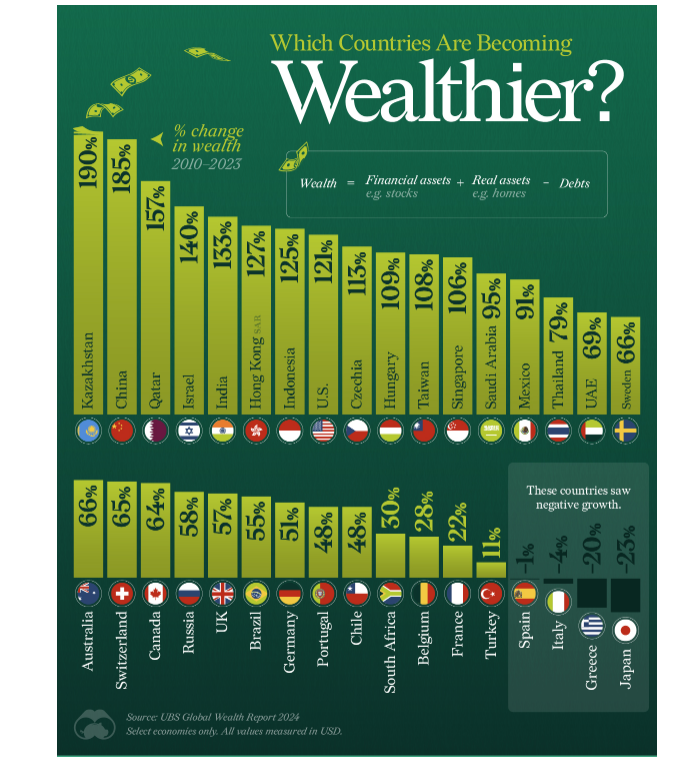
There are numerous methods for calculating a country's wealth. One common approach is to assess household net worth, which involves measuring household wealth by taking the total value of financial assets (such as equities) and real assets (like property) and then subtracting any debts.
According to the UBS Global Wealth Report 2024, Kazakhstan has experienced a remarkable wealth increase of 185% since 2010, ahead of China (185%) and Qatar (157%). Conversely, Spain (-1%), Italy (-4%), Greece (-20%), and Japan (-23%) report declines in household wealth over the same period.
Kazakhstan has emerged as a leading producer of oil, uranium and other natural resources. According to World Bank data, the country's GDP has experienced remarkable growth since 1990, rising from $27 billion to $261 billion in 2023, with all values measured in dollars.
This substantial increase in wealth can be attributed to several macroeconomic trends, including higher wages in city centres, appreciation in real estate and improved access to financial services.
However, many European countries were severely impacted by the Eurozone debt crisis in the early 2010s, which adversely affected household income and wealth accumulation. In comparison, Spain (-1%), Italy (-4%), and Greece (-20%) all report negative growth rates.
Similarly, Japan has faced challenges in growing its economy since the 2000s, which has also constrained opportunities for wealth accumulation.
